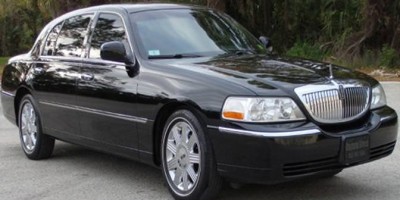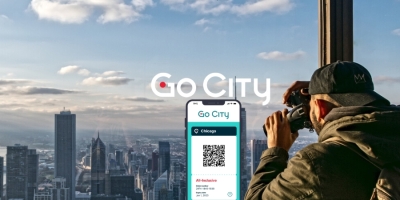Main Menu
-
Itineraries & Vacations
- Itineraries & Vacations
- BY TYPE
- Escorted Group Tours
- Road Trips in The US™
- BY INTEREST
- Route 66
- National Parks
- BY SPECIAL OFFER
- GIFT CARD
- Tours in Major Cities
-
Travel Guides
- Travel Guides MOST VISITED CITY
- New York City Guide
- TOUR GUIDES BY CITY
- Miami - Travel Guide
- Los Angeles - Travel Guide
- San Francisco - Travel Guide
- Las Vegas - Travel Guide
- Chicago - Travel Guide
- Washington DC - Travel Guide
- Boston - Travel Guide
- San Diego - Travel Guide
- Orlando - Travel Guide
- New Orleans - Travel Guide
- TRAVELING IN THE US
- Good to Know
- Lodgings
- Disney Travels™
Explore the Chicago Architecture Center
A Landmark of Design and Innovation in the Heart of Chicago Categories: Chicago - Travel Guide - What to see
Index - Explore the Chicago Architecture Center


- - The Chicago Architecture Center: A Journey into the Heart of Architecture
- - History of the Chicago Architecture Center
- - Highlights of the Chicago Architecture Center
- - Tours Available with the Chicago Architecture Center
- - Why Visit the Chicago Architecture Center
- - How to Get to the Chicago Architecture Center
- - Hours and Tickets
- - Chicago: topics that may interest you
The Chicago Architecture Center: A Journey into the Heart of Architecture
The Chicago Architecture Center is one of the most prominent cultural institutions among the museums in Chicago. Founded to promote the understanding and importance of architecture in daily life, the CAC has become a vital destination for those looking to explore the city’s architectural history, its impact, and its future. Located in the heart of Chicago, the center offers interactive exhibitions, scaled city models, guided tours, and river cruises along the Chicago River, unveiling the intricate connection between design and urban life.History of the Chicago Architecture Center
Established in 1966, the Chicago Architecture Center began with the goal of preserving the Glessner House, one of Chicago’s oldest residences, designed by architect H.H. Richardson. A passion for architectural heritage and a commitment to preserving and promoting architectural culture soon led the CAC to expand and diversify its activities.Originally known as the Chicago School of Architecture Foundation, the center began organizing lectures and guided tours, inviting the public to explore the city's various historic buildings. In 1979, it was renamed the Chicago Architecture Foundation, reflecting its growing mission. In 1992, the center moved into the Railway Exchange Building, adding an exhibition space and a specialized library.
In 2005, the CAC co-founded the Association of Architecture Organizations, an international group dedicated to public architectural education. Another important milestone came in 2009 with the opening of the Chicago Model, a permanent exhibit featuring a 3D scale model of downtown, which quickly became a major CAC attraction. Finally, in 2018, the center relocated to its new location at One Illinois Center, designed by the celebrated Mies van der Rohe, where it continues to inspire thousands of visitors.
Highlights of the Chicago Architecture Center
The Chicago Architecture Center is more than just an exhibition space; it’s an immersive educational experience. Inside, visitors can explore diverse exhibits that span from the city’s architectural history to future sustainable projects. Here are just a few of its main attractions.• Chicago City Model: This is one of the CAC’s highlights. It is a detailed model of the city featuring over 4,200 miniature buildings, offering an expansive view of Chicago’s evolving urban planning and architectural landscape. Interactive screens and cinematic lighting accompany the model, bringing to life the key moments in the city’s history.
• Energy Revolution Exhibit: This exhibit is dedicated to the sustainable future of cities. Through innovative projects, the CAC explores how architecture and urban planning can contribute to a carbon-neutral city. The exhibition showcases various technologies and approaches cities around the world are adopting to reduce environmental impact.
• City in a Snow Globe: A winter-exclusive exhibit. Completely unique, it presents a series of imagined winter scenes along Chicago’s lakefront. Visitors can marvel at miniature models of winter installations, including giant snowmen and Christmas decorations at Buckingham Fountain. This installation transports visitors to a magical world, showcasing how Chicago can be enjoyed even during the colder months.
Tours Available with the Chicago Architecture Center
The Chicago Architecture Center offers not only exhibits but also an extensive range of approximately 85 tours, each led by expert volunteers who complete a rigorous 14-week training program. The tours cover various areas of Chicago, from the historic downtown to the outer neighborhoods, each with its unique architectural features. Here are a few examples of the top tours offered.• Loop Tour: This tour focuses on the architectural landmarks of the Loop, the city’s financial and commercial heart. Here, visitors can admire historic buildings like the Chicago Board of Trade, the Marquette Building, and the Rookery, a masterpiece by Daniel Burnham and John Wellborn Root, famous for its extraordinary atrium.
• Modern Architecture Tour: For those interested in modern works, the CAC offers tours including iconic buildings such as the Willis Tower (formerly Sears Tower), the John Hancock Center, and Mies van der Rohe’s Chicago Federal Center. This selection showcases Chicago’s contribution to modern architectural innovation and urban verticality.
• Parks and Public Spaces Tour: The CAC also offers tours of city parks like the famous Millennium Park and Maggie Daley Park. These spaces are examples of community-focused architecture, providing green areas, sculptures, and recreation spots that enhance the city’s quality of life.
• Neighborhood Tours: During the summer, the CAC expands its offerings with tours through various Chicago neighborhoods, each with its distinctive cultural and architectural features, revealing the city’s diversity beyond downtown skyscrapers.
• CAFC River Cruise: One of the most famous and popular tours is the river cruise along the Chicago River. Organized in partnership with Chicago’s First Lady Cruises, the tour provides a unique perspective of the city; visitors can view the skyscrapers rising along the riverbanks while learning fascinating stories about their construction and the development of Chicago’s skyline.
Why Visit the Chicago Architecture Center
Visiting the Chicago Architecture Center is a journey through decades of architectural and social history. But the CAC doesn’t just look to the past; it also offers a vision for the future: through innovative exhibits and engaging tours, the center demonstrates how design and architecture can respond to contemporary societal needs, adapting to climate and social changes.For those interested in the museums of Chicago, the CAC offers a unique experience that differs from traditional museums. Here, architecture is not just a subject of study but a tool for exploring urban culture and the relationship between the city and its residents.
How to Get to the Chicago Architecture Center
The Chicago Architecture Center is conveniently accessible and located in one of the city’s most vibrant areas. Its central location also makes it an ideal starting point for exploring Chicago. For those planning a visit to the CAC, several transportation options make the journey easy, whether coming from out of town or traveling locally.1. From the Airport
For those flying into Chicago, there are two main international airports, both well-connected to downtown via public transit.
• From O’Hare International Airport (ORD), the easiest way to reach downtown is by taking the CTA Blue Line train to Clark/Lake station. From there, a pleasant 10-minute walk east along Wacker Drive leads directly to the Chicago Architecture Center.
• From Midway International Airport (MDW), visitors can take the CTA Orange Line to State/Lake. A short 10-minute walk along Wacker Drive will then lead to the destination.
For those who prefer to drive, reaching the Chicago Architecture Center is straightforward.
• From O’Hare Airport, take I-90 E, followed by I-290 E to downtown. Exit at Wacker Drive and follow signs to 112 E Wacker Dr.
• From Midway Airport, the best route is via I-55 N toward downtown Chicago. Continue on Lake Shore Drive N and then take the exit to Wacker Drive for a quick arrival.
Chicago’s public transit system is highly efficient and makes it easy to reach the Chicago Architecture Center.
• For subway riders, the closest stops are State/Lake or Clark/Lake, served by several lines (Red, Green, Orange, Brown, Pink, Purple, and Blue).
• Buses are also an excellent option for local travel. Several routes stop near the center, including buses 2, 6, 10, 29, 146, and 147, with various options depending on the starting location.
Hours and Tickets
The Chicago Architecture Center is open daily from 10:00 a.m. to 5:00 p.m. Admission is $15 for adults and $8 for youths aged 5 to 17, while children under 5 enjoy free entry. Additionally, members of the Chicago Architecture Center receive free admission daily.At present, there are no free admission days each week, but the center occasionally offers discounted tickets or free events for specific pop-up exhibits or external shows.
Chicago: topics that may interest you

Categories: Chicago - Travel Guide - What to know

Chicago and its surroundings: must-see attractions you absolutely shouldn't miss
Categories: Chicago - Travel Guide - What to know

Categories: Chicago - Travel Guide - What to know
We are your
local Tour Agency
in New York City
local Tour Agency
in New York City
Tailored Vacations
Secure Bookings
Your peers love it!
Your vacation, your way!
Free cancellation
BECAUSE IT'S OKAY TO CHANGE PLANS
Planning a vacation shouldn't be stressful. We all know plans might change, that is why we offer free cancellation for most of our services and tours. *
*exclusions may apply, please refer to each tour.
Planning a vacation shouldn't be stressful. We all know plans might change, that is why we offer free cancellation for most of our services and tours. *
*exclusions may apply, please refer to each tour.
What They
Say
Say
Devonnec770 | TripAdvisor
I’m the biggest fan of Fall activities, but haven’t had a chance to do anything beyond Apple Picking in NJ. I decided to take a last minute 2 day trip with a friend in Hudson Valley, but didn’t know where to start [...] Thankfully I was able to use New York Welcome to do the hard work for us [...]
From TripAdvisor - October 2021
Breanna A. | TripAdvisor
Irene was a FANTASTIC tour guide! She was so knowledgeable about the area and was so patient with all our questions. We stopped to use the bathroom and we got coffee halfway through, she was so kind! It was a pleasure learning about Brooklyn from you!
From TripAdvisor - April 2022
Keep in contact
Subscribe to our "New York x USA Welcome" Newsletter to receive Tips & Special Offers to help you plan your travels in the US!
Chicago PASSES
Chicago Transfers
Chicago Information
Sightseeing & City Tours in Major Cities
- Brunch Cruise, Champagne & Live Music in San Francisco
- San Francisco Grand City Tour & Escape from the Rock Bay Cruise
- Escorted City Tour and Universal Studios entrance Ticket in LA
- 1 Day tour to Solvang, Hearst Castle and Santa Barbara from LA
- Chicago CityPASS
- Whale Watching Cruise in The Boston Bay
Escorted Group Tours - Traveling in The US with a Group
Private Transfer in Major Cities
Our Destinations in The USA
The US - Good to know
Our Company
Office












